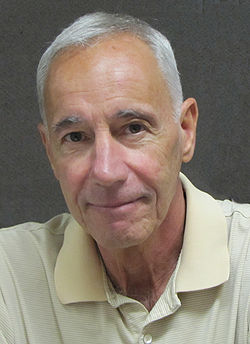Forty-six years ago, in mid-August, 1971, I arrived in Salt Lake City to begin journalism school at the University of Utah. Having just completed four years in the Marine Corps, I was ready to launch a new career.
In recent years, I’ve been thanked many times for my military service, but I’m writing this piece to say why I am grateful. You see, the people of the United States were already expressing their thanks long ago in real terms. I had lived up to the oath I had sworn on July 27, 1967, and the citizens of the United States, through their taxes, were making good on the nation’s promise to me to help finance my college education through the GI Bill. The GI Bill augmented the money I was withdrawing from personal savings and earnings from part-time work. I was paying non-resident tuition at the U, so the state did not recognize me as one of its own. That was okay. I had experience as an American living in Tennessee, or an American living in North Carolina, or Vietnam, or Japan, so the idea of being an American living in Utah was no big stretch.
So why am I still here?
Two years into my time at the U, one of my classmates, Harold Baker Spencer, invited me to take a road trip through southeastern Utah. His cousin, some coal mining guy named Sam Quigley, had offered to guide a tour through the Southeastern Utah desert. So Spencer, his wife Donna and I shared a pickup truck with Sam and Colleen Quigley, their son, and their friend, Tom May.
Suffice it to say what I saw was nothing like anything I had ever seen before. Quigley enhanced it all with his knowledge of the roads, the springs, geology, history and prehistory of the region. I was surrounded by beauty, from little, tiny flowers struggling for life in the arid ground, to a sky full of stars. It whetted my appetite to learn more. So over the years, I did.
I also heard something I had never heard before: absolute silence. We had pulled over for a pit stop near Temple Mountain. I hiked up and over a little ridge to find some privacy.
I had found a place on earth where the only sound was my breathing. There wasn’t even a breeze to stir the junipers and those obnoxious little black gnats hadn’t hatched yet.
The trip did a lot to shape the philosophy I’ve kept. I think that tranquility, a place and time to absorb the beauty around us, has high value. Clean and quiet places are not worthless simply because we can’t make money off them.
A few concerns
Before anyone thinks that I favor banning motor vehicles from public lands, that’s not so. For the kids and me, the reliable pickup was an absolute necessity to get where we wanted to go, and there was no music as sweet as the sound of the engine starting when it was time to return home from the middle of nowhere.
I don’t want to lock anyone out of public lands, but I think we ought to be very careful and conservative about land use decisions that could lock most of us and future generations out of the few tranquil spaces that still remain. Based on what I’ve seen so far, it could happen that if Utah somehow gets control of the land that now belongs to all the people, it will come to pass that the state government will extract royalties and agricultural rent revenues and then take credit for keeping income tax rates down.
As time goes by and the minerals and soils deplete or commodity prices change, state land management will become a cost rather a source of revenue, and the pressure will then be to generate revenue by auctioning off the land to the highest bidders. The winners, whose money is good no matter what state or nation they call home, will put up more gates and restrict access. Unlike the current Forest Service and BLM plans that draw criticism for temporary road closures, the closures to come will last forever as private property.
Plenty of protests
Now, as I listen to the blather of politicians and candidates who make a living by railing against the national government, I take a trip though old memories and remember how much I had to be grateful for when I was a young adult.
I never did tell you why I joined the Marines in the first place. Back in 1966 and 1967, I was a student at the University of Buffalo, attending on a full-tuition Regents scholarship. I was a swimmer, too. The late sixties were a time of protest against the federal government. College-age kids did not like the idea of war, especially when it involved the draft. They also didn’t like government intrusion into lifestyle choices like free love and dope. They were pretty noisy about their disagreements.
What really ticked me off, though, is when protesters at UB stoned Clark Gymnasium and broke windows at the pool. What does the college swimming pool have to do with Vietnam? They might have been upset that some ROTC activities were nearby.
I did not want to be associated with this kind of thing, so I walked out of college, away from my scholarship and into the recruiter’s office.
I’ve seen protests before, ranging from campus uproars to ATV flash mobs. I have not heard where Jane Fonda stands on the latest Utah v. feds controversy, though. In the past, people did not like it when she sided with groups who opposed federal intrusion.

